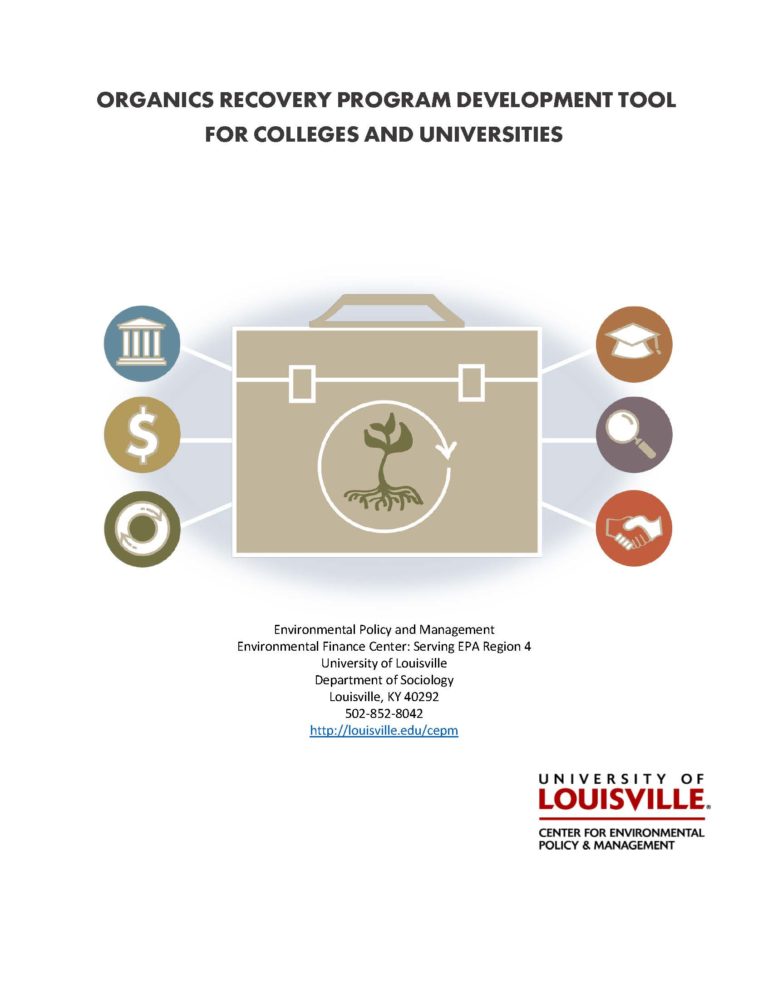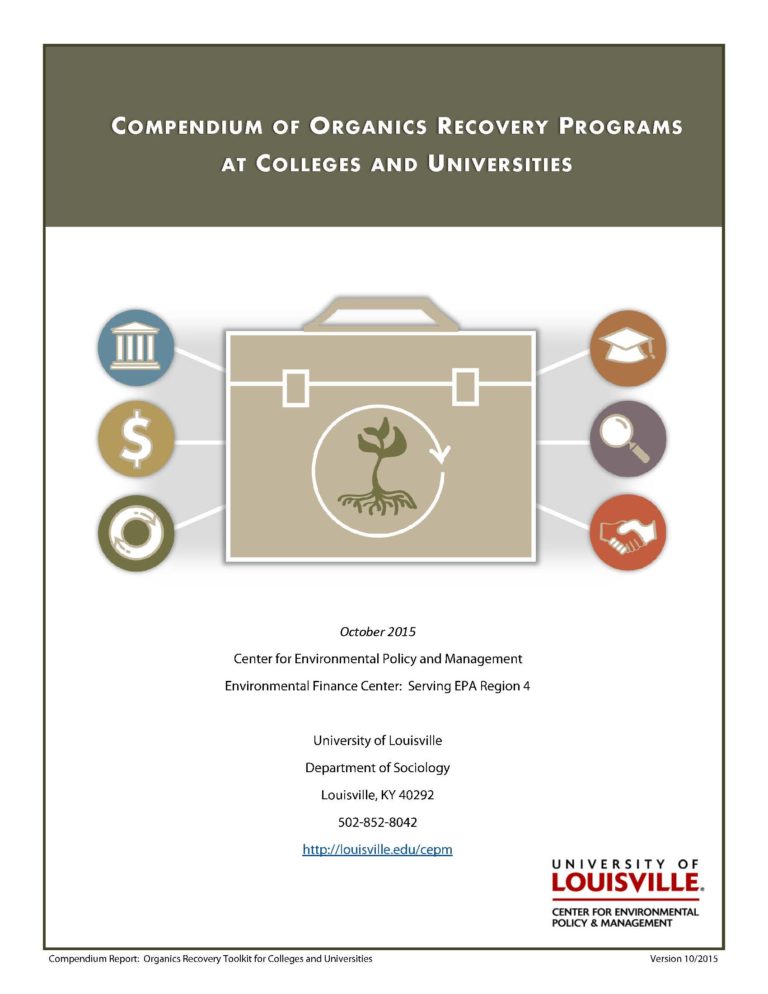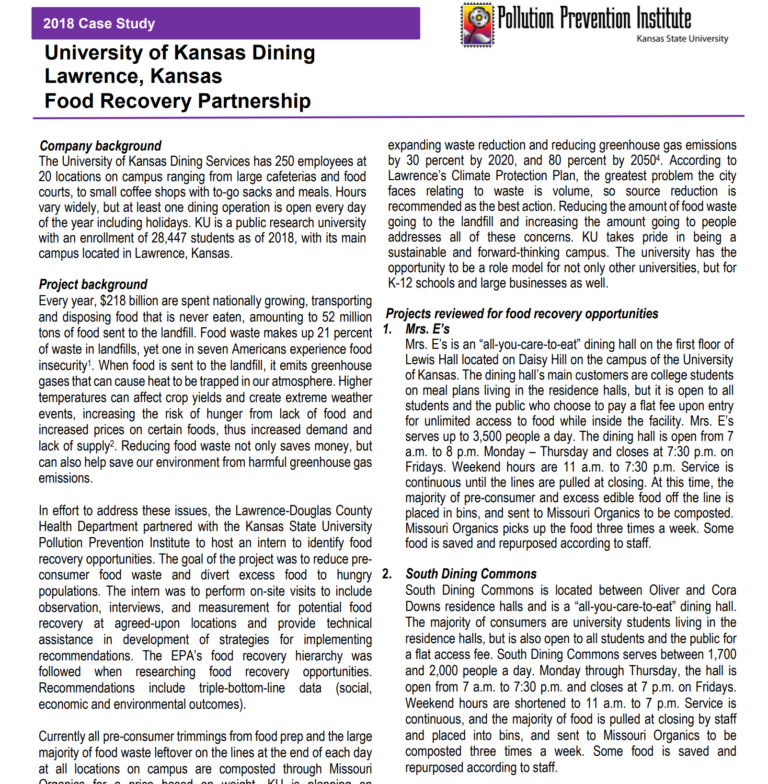The purpose of the Organics Recovery Program Development Tool for Colleges and Universities (“Tool”) is to assist post-secondary institutions with organizing new or expanding existing organics recovery programming with a special focus on composting.
The Tool is organized by common practical composting methods from existing resources, and it is supported with school-specific examples and best practices. Each section of the Tool is framed around the questions that institutions should ask themselves as they begin to compare different options for organics recovery.
The Tool is meant to serve as a launching-pad for exploring methods that could suit the diversity of schools, regardless of size, student enrollment, and geographic location. With permission and input from institutional representatives, descriptions of existing programs and linked external resources are provided. It is understood that given the uniqueness of institutional management structures, funding availability, state/local regulations, on-site space availability or off-site centralized facilities, and a host of other factors, there cannot be a one-size-fits-all model for organics recovery decision-making. However, by revealing the key areas for weighing capacities and constraints, while learning about other existing programs, decision-makers can begin to gather the information that can lead to more informed decisions about which methods to adopt.
Note: Information for the Southeastern U.S. schools profiled in the Tool can be found in the document: “Compendium of Organics Recovery Programs at Colleges and Universities.”



